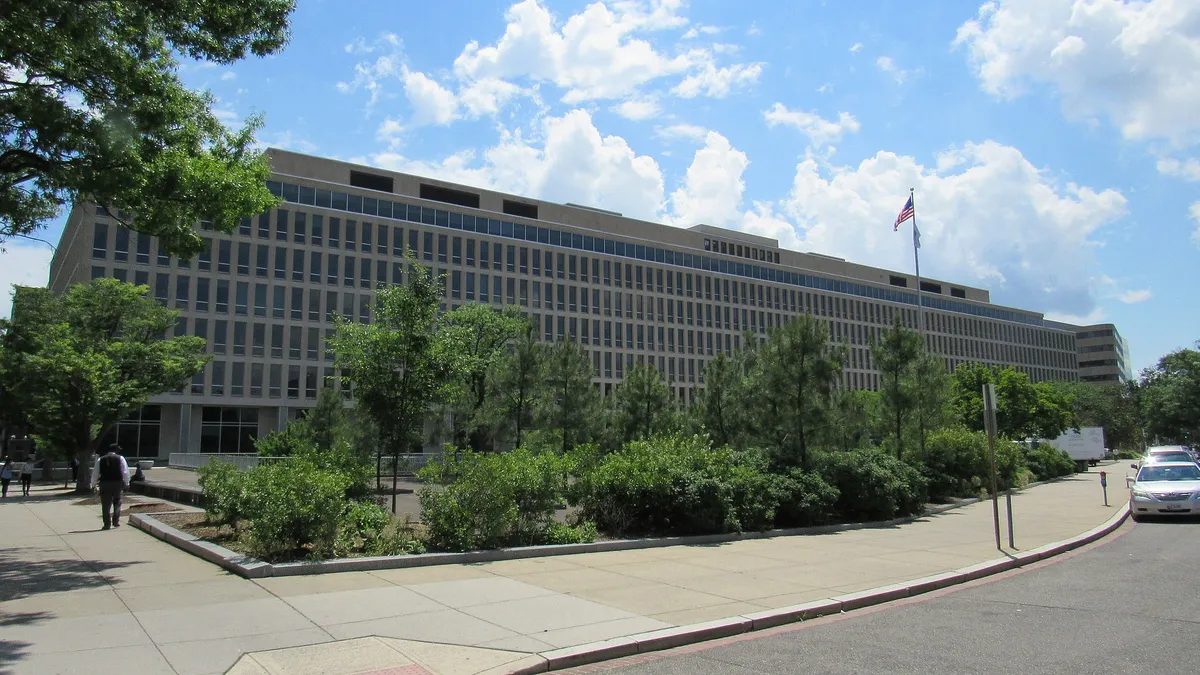What is the best way to encourage better educational and career outcomes for college students?
One idea popular now is to publicly release information on student outcomes for different colleges or their programs. The U.S. Department of Education does this through its College Scorecard, which in recent years has been adding program-level data. The theory behind this line of thinking is that students will stay away from low-performing colleges, so the forces of supply and demand will push poor performers to improve or close.
But some argue this competitive market is unlikely to ever take shape. The federal government has the responsibility to create a system that would hold colleges accountable and improve outcomes for students, according to an article published recently by the Brookings Institution.
Colleges must meet certain criteria to receive federal student aid, something prospective students could interpret as a benchmark of quality. Instead, the requirements mean little for student success rates, and the bar colleges need to clear is shockingly low, the article's authors argued. Information without context won't serve the students who need it the most, they wrote.
Stephanie Riegg Cellini is one of the piece's authors. She is a professor of public policy and economics at George Washington University and a faculty research fellow at the National Bureau of Economic Research. She spoke with Higher Ed Dive about how transparency can help and what role she thinks the federal government should play in assuring quality.
This interview has been edited for brevity and clarity.
HIGHER ED DIVE: Why are you arguing that just putting information out there for students won't solve the issues you raised?
STEPHANIE RIEGG CELLINI: There are several different information problems for higher education. And they're all different versions of imperfect information.
The first is that institutions have more information on school quality and student outcomes than the students do. Unstructured data is a lot harder to process than well-produced misinformation. The second piece is that college is an experience good — you don't know the full value of it until after you've purchased it. So you really don't know how well an institution would fit your needs or the quality of instruction until after you've already enrolled and taken on debt to attend.
In the last decade, the College Scorecard began releasing some student outcomes data to the public. Did it help students equally?
No. There's research about whether students changed their application behavior in response to the College Scorecard. It found, with the first release of earnings data, a lot of students were responding to earnings 10 years after participants enter college.
But behavior changes were concentrated among White students, Asian students and those from well-resourced high schools. The research found no change in application behavior for Black and Hispanic students.
What role do you see the federal government playing to ensure colleges are transparent with their information?
We think it's the government's role to ensure that students don't enroll in programs or schools that will ultimately lead them to have negative outcomes. There are various ways to measure student success.
But our point in this article is, right now, the bar that the government sets is far too low. For example, there are cohort default rates in place. Very few institutions seem to have trouble with that particular bar and there's no additional accountability for student outcomes. So colleges can continue to get student aid even if their students aren't able to repay their debts or have high enough earnings.
What can colleges and universities do to bridge this knowledge gap? Do you think action will be taken without federal oversight?
It hasn't so far. It's particularly concerning to see a lot of lawsuits alleging misrepresentation from some colleges and their advertising. If you add high advertising spend with potentially misleading claims, that really increases the chances students will unknowingly invest in an education that won't pay off.
If the government has information on completion rates, default rates, student loan repayments or earnings after college, it should use that data to ensure that those schools can't continue to enroll students with federal aid.














